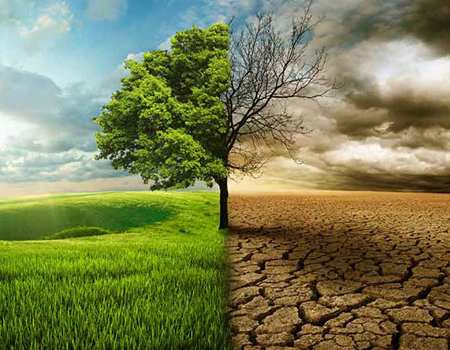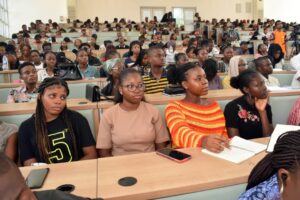Campus journalists have been sensitized to the need to pay attention to climate change and health issues in their reporting.
They were offered insights on the two important issues at a recent webinar organized by the National Union of Campus Journalists tagged “NUCJ Capacity Building: Climate and Health Reporting Webinar”.
The facilitators were Akintude Babatunde who is the Program Manager, Premium Times Centre for Investigative Journalism (PTCIJ) NAREP and Chibuike Alagbaso, a journalist from Nigeria Health Watch. The session was moderated by Chiamaka Okafor, a journalist and PTCIJ Udeme Project Assistant.
Akintunde who spoke on why climate reporting is an important aspect of journalism said “the idea of climate journalism is to promote public dialogue about environmental sustainability issues.
He stated that Nigeria has a tropical climate with two precipitation regimes which are low precipitation in the North and high precipitation in parts of Southwest and Southeast.
“This has led to aridity, drought and desertification in the North, and flooding and erosion in the South. These occurrences, in turn, lead to human migration and displacement, food insecurity, water shortages and greater risk of certain illnesses.”
READ ALSO: How to harness Campus Journalism opportunities
Akintude urged campus journalists to study the comprehensive view of climate change in their community and school, noting that they should focus on the state’s energy policy, examine the amount of electricity used on campuses and choose human-angle stories.
Alagbaso, who spoke on the effects of climate change on public health said that climate change impacts public health as upon its occurrence destroys economic activities, farming, malnutrition, and tends to breed sites for mosquitoes.
While stating that poor sanitation, loss of revenue are also major impacts of climate change, he related it to how campus journalists can link it up to solution journalism stories after revealing what makes up SoJo stories. He said campus journalists can find climate SoJo stories by way of MAR, which he listed as “Mitigation, Adaptation, and Resilience.”
He added that for mitigation, campus journalists should take notice of solutions that are concerned with lessening the effects of climate change, while on adaptation, campus journalists should look for solutions that are about finding replacements for what climate change effects have altered.
For resilience, he suggested that campus journalists should focus on solutions that are helping people, even animals to cope with climate change.
Nurudeen Akewushola, the Publicity Secretary of NUCJ in his closing remarks urged campus journalists to share knowledge gained across their local chapters, and show interest in climate reporting as it affects our day to day activities.
According to NUCJ, the webinar seeks “to introduce campus journalists to the rudiments of health and climate change reporting” as it will “expose campus journalists to the role of the media in driving awareness on climate issues and its impacts on health.
It will also help them to understand the coverage of the issues and how to engage the public, government and other climate change stakeholders.



